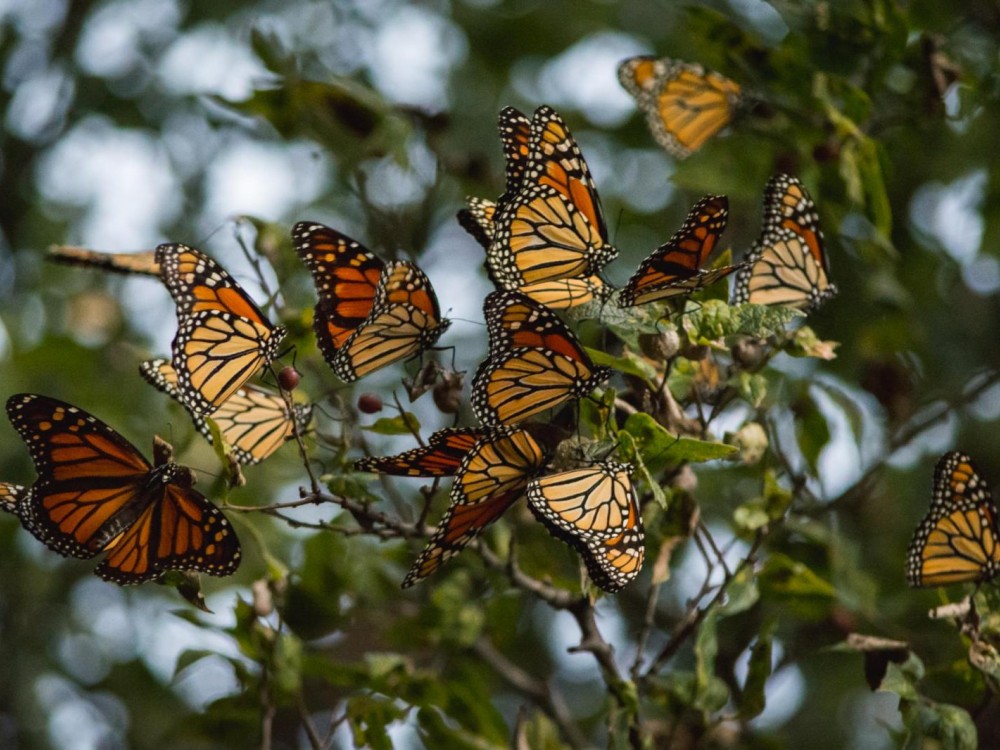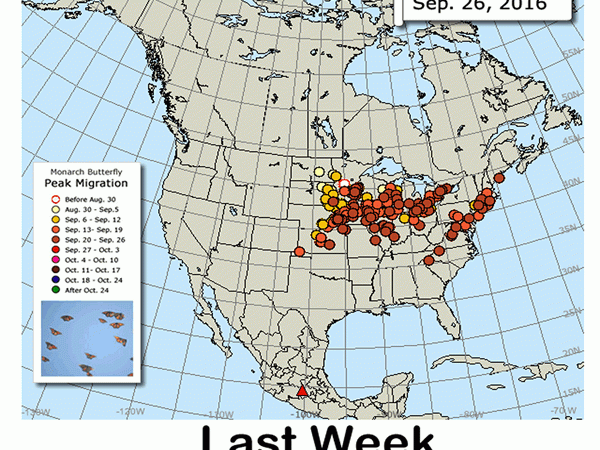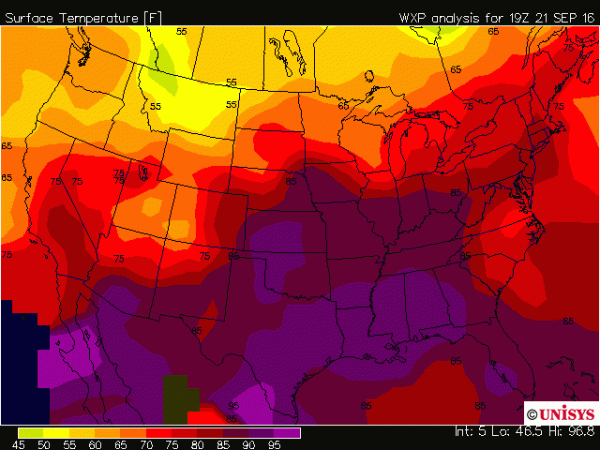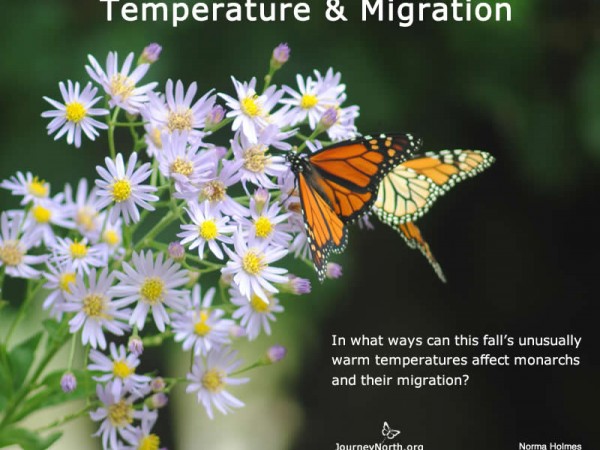Migration Enters Texas
A sudden and dramatic sweep into northern Texas occurred this week as the migration map shows. A river of wind carried monarchs by the thousands across Missouri and Oklahoma where a roost of 4,000 butterflies was reported — the largest of the season. On Friday, September 30, a dozen Texans reported in as a wave of butterflies arrived.
"Between 6:30 pm and 7:45 pm I counted at least 500 monarchs coming in to roost for the night. This is one of the best counts I've seen in a few years!" reported Lynn from Wichita Falls.
From Winnipeg to Wichita
The monarchs are now spread out across a north-to-south distance of 1,200 miles. There are some still lingering in the north, a few earlybirds entering northern Mexico, and millions of butterflies everywhere in between. Here's a snapshot:
"I was working in my garage when in flew a monarch. It stayed for a minute or two and then flew out the door," reported Gerry from Winnipeg on October 3rd.
"Migration just seems to keep going this year," reported Terry from Toronto on October 4th
"Las primeras mariposas ya se empiezan a ver en la frontera cruzando el río Bravo," reported Rocio about a sighting in Ciudad Acuña on October 2nd.
Warm Fall, Late Sightings
Temperatures across the north have been unusually warm this fall. This has extended the growing season for monarchs. Some were laying eggs through September as far north as New York.
- Will the eggs have time to become adult butterflies?
- Will they leave the north before it's too cold to fly?
- Will flowers still be blooming and providing nectar along the way?
Let's see what the weather holds in the days ahead...





